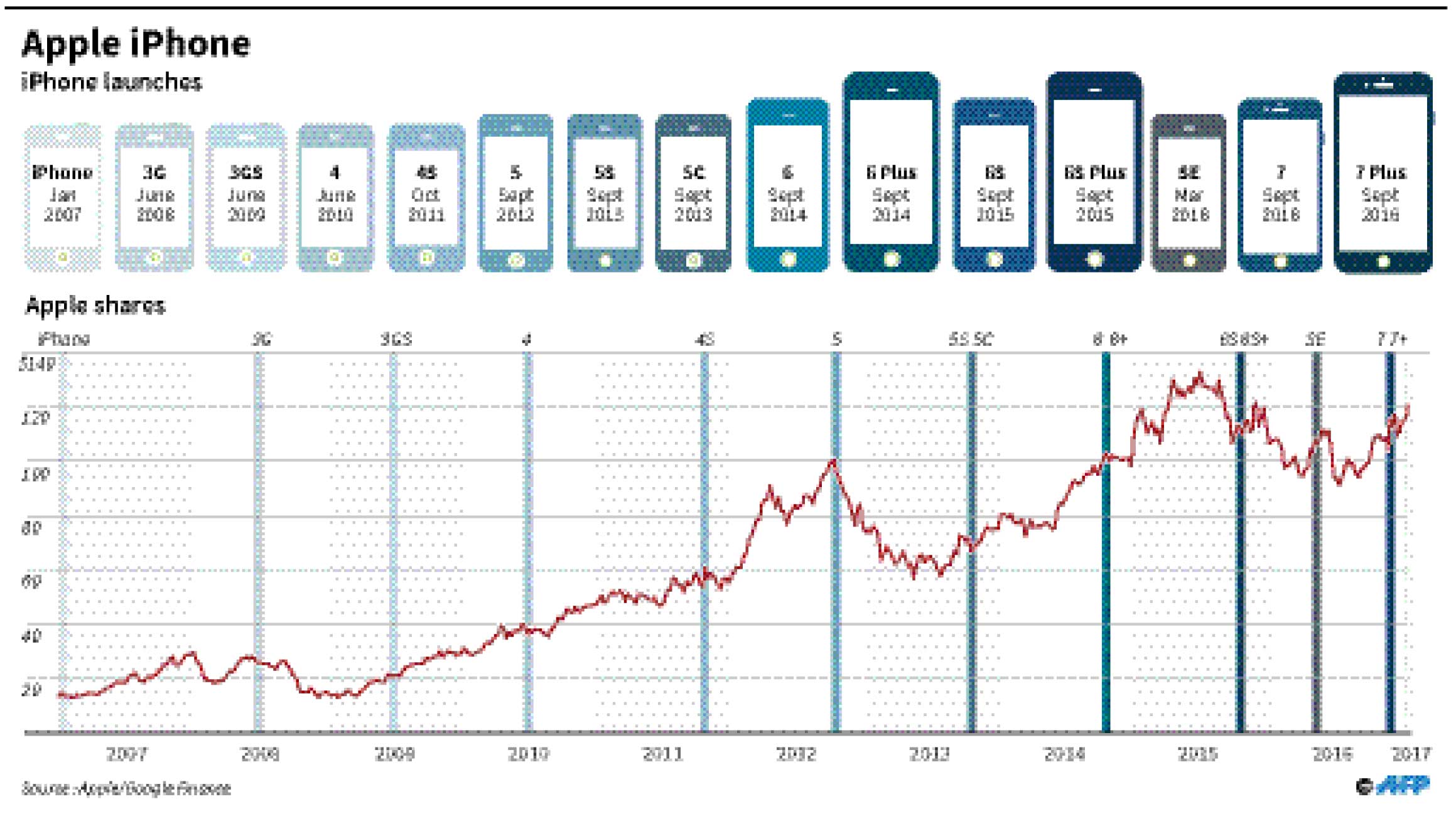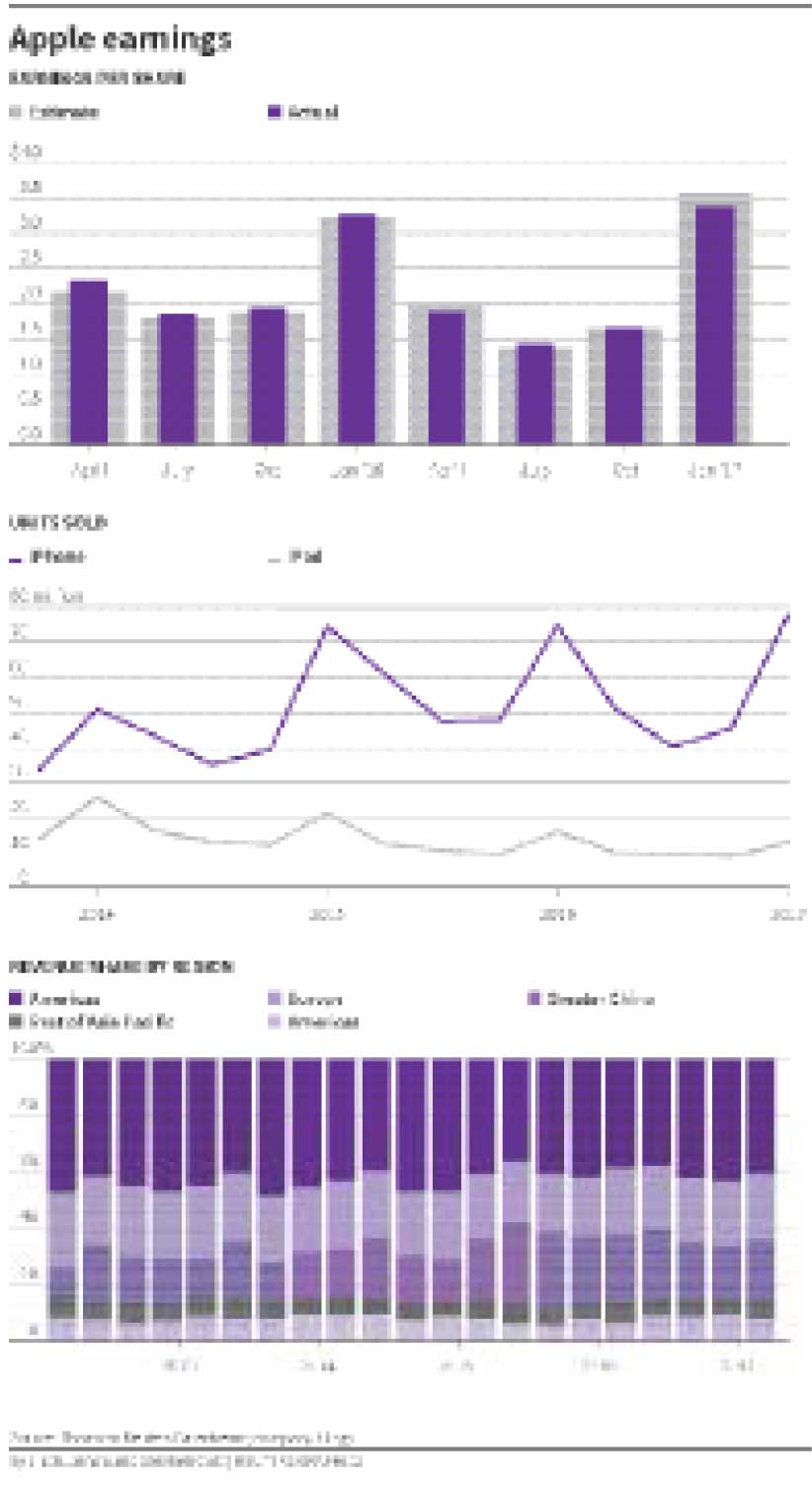Tuesday Feb 17, 2026
Tuesday Feb 17, 2026
Monday, 6 February 2017 00:23 - - {{hitsCtrl.values.hits}}
Reuters: “Things don’t have to change the world to be important,” Apple Inc co-founder Steve Jobs said in an interview in 1996.
His words rang true, two decades later, as sales of the iPhone 7 and 7 Plus – similar in design to their predecessor – surpassed expectations to reinstate Apple as the world’s biggest smartphone seller after a five-year gap.
This has only built expectations, however, that the 10th-anniversary iPhone will need to offer revolutionary new features if it is to trigger a substantial uptick in sales.
“This is really the last (quarter) that anybody is going to care about iPhone until the launch this fall,” Cowen & Co analysts wrote in a note. “It can be said that iPhone 7/7+ ‘did its job’ as a bridge to get to the supercycle in 2017.”
Apple’s shares rose as much as 5.8% to $128.30 their highest in 18 months, a day after the company dethroned Samsung Electronics Co Ltd as the world’s top smartphone seller based on units shipped.
At the day’s high, more than $36 billion was added to the company’s market value.
Apple sold 78.29 million iPhones in its fiscal first quarter ended Dec. 31, up from 74.78 million a year earlier. Analysts on average had expected sales of 77.42 million.


The sales reflected the first full quarter of iPhone 7 sales and come at a time when global demand for smartphones is slowing and cheaper Android alternatives are flooding the market. Apple may also have benefited from Samsung’s much-publicised recall of its fire-prone Galaxy Note 7.
Apple’s strong sales set the stage for the 10th-anniversary iPhone, which analysts say is expected to feature better touchscreen display, wireless charging and a shift to a higher-resolution OLED display.
The company typically launches new iPhones in September. A big jump in sales usually follows in the holiday quarter, before demand tapers over the next few quarters as customers hold back in anticipation of the next launch.
Existing iPhone users tend to upgrade their devices when the new model has significant design changes. Apple last saw a significant uptick in sales with the introduction of iPhone 6 in 2015.
“We see pent-up demand heading into a significant form factor change that is likely to accelerate iPhone unit growth,” Morgan Stanley analysts wrote in a note.